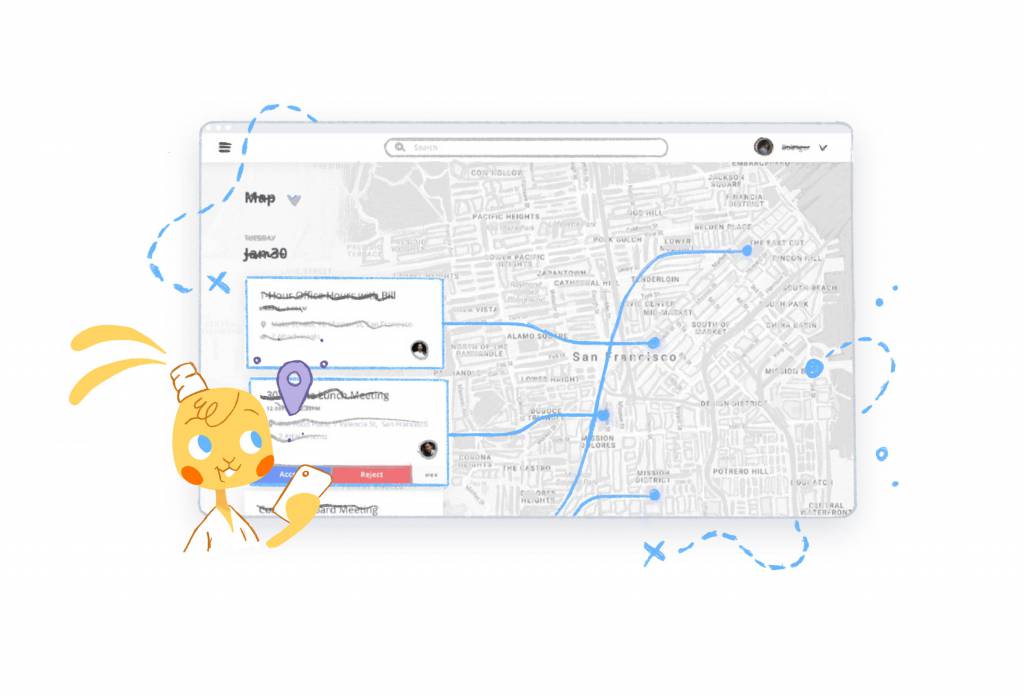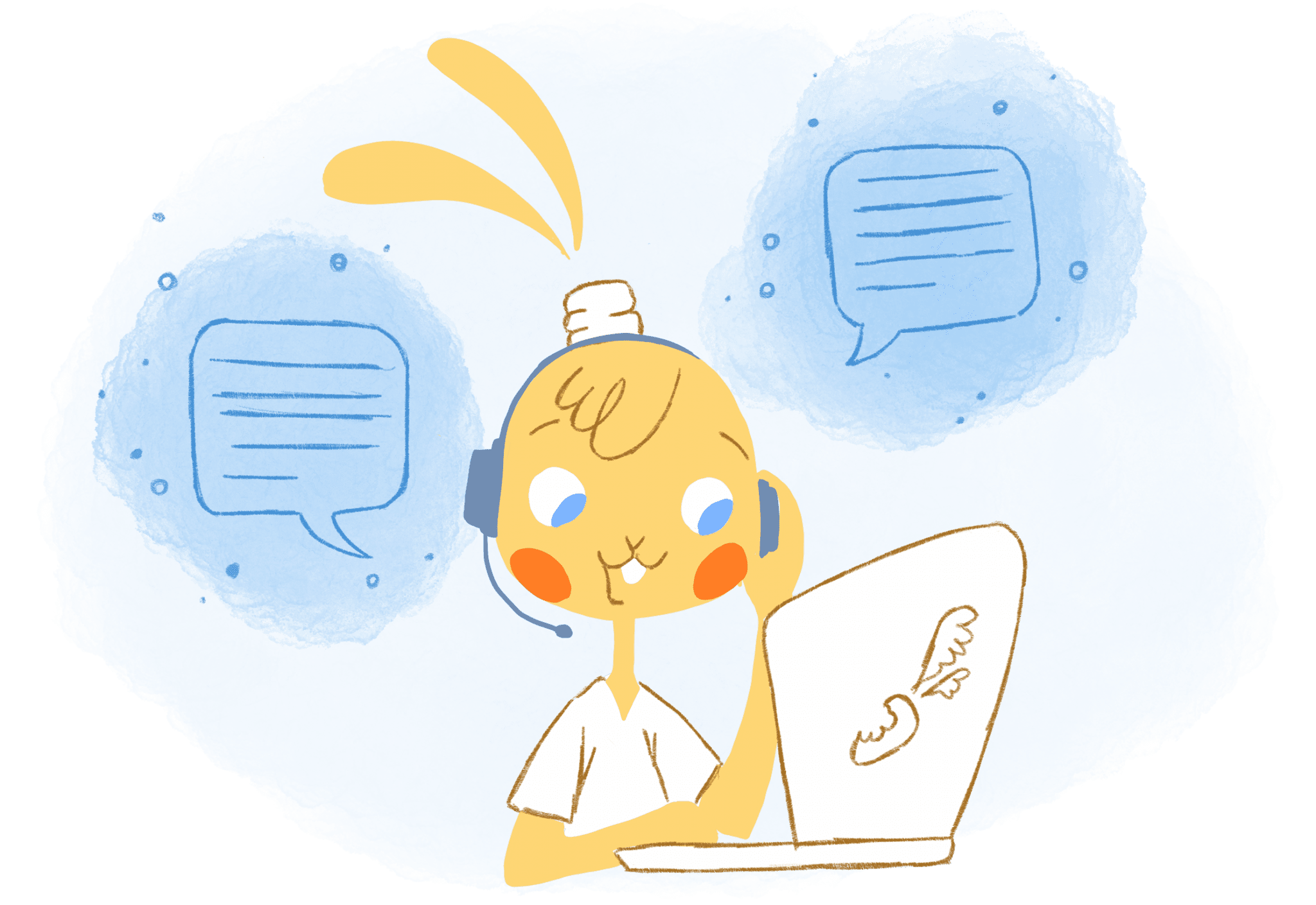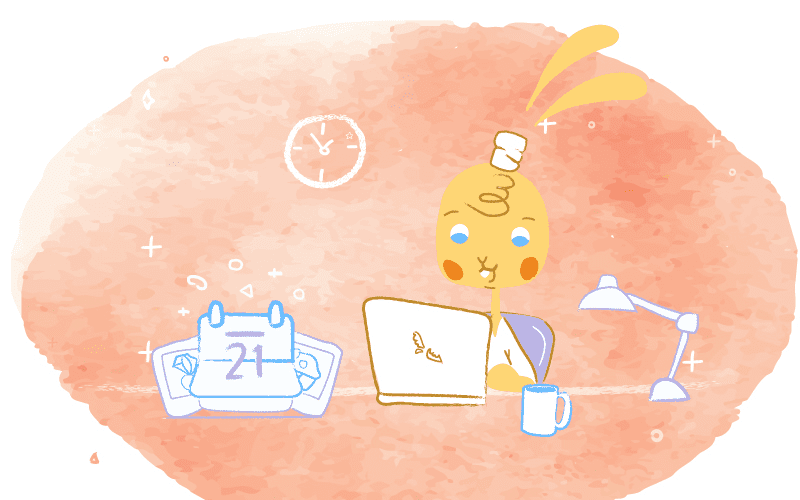

I know what you’re thinking. Aren’t you supposed to only schedule work-related tasks like meetings and priorities, such as doctors appointments? Well, I’m sure most of you do. That’s why 52 percent of American employees have unused vacation time. At the same time, you also need to schedule free time in addition to those deadlines and appointments in your calendar. But, what exactly is free time?
Free time is anything that’s not work-related. It could be anything from hanging out with friends and family to reading to meditating to working on a passion project. It could even be staring out the window for 15 minutes.
You may not think that you have the time for such luxuries. But the fact is that you do if you make it a priority. In fact, it’s fairly simple. Just block out a specific period of time like you would for a meeting, for example.
Even though it sounds easy, you may be hesitant in scheduling free time. After all, it seems a little strange to block out time in your schedule for something that’s not work-related, but I’ll give you 12 reasons why it’s necessary, as well how you should spend that time.
1. Free time makes you happy.
Researchers from the University of British Columbia found that free time is more important for happiness than money.
“It appears that people have a stable preference for valuing their time over making more money, and prioritizing time is associated with greater happiness,” said lead researcher Ashley Whillans from the University of British Columbia. Interestingly, the study also shows that “giving up a few hours of a paycheck to volunteer at a food bank may have more bang for your buck in making you feel happier.”
Whillans adds that “buying time boosts happiness by mitigating the effects of time stress — the feeling that there aren’t enough hours in the day.” This makes sense. If you constantly feel like you’re pressed for time, how satisfied do you think you’ll be in life?
2. Encourages self-care.
When you schedule free time you’re encouraging yourself to attend to your own health and well-being. As a result, you’ll take fewer sick days, become more productive, and improve your mood.
In fact, if you spend this time meditating and exercising you can reduce stress and anxiety, boost cognition, and increase your alertness and energy.
3. Work can sneak-up on you.
No matter how tired, hungry, or stressed you are there’s always “one more thing to do.” Thanks to being connected 24/7, there’s also a phone call or email to respond to when you’re spending time with friends and family. That means if you don’t make it a point to have some team for yourself you’ll never be able to completely get “off-the-clock.”
We all need time to unplug and take a break from work. It gives us a chance to unwind and recharge. As a result, you’ll be refreshed and focused when you return to work.
4. It shows others that they’re a priority.
Let’s say you haven’t seen your best friend in months or keep leaving the dinner table to answer a work call. How do you think that makes others feel? It probably makes them feel like they’re not as important to you as work.
Scheduling free time so that you can spend quality time with your friends and family lets them know that they are a priority. As an added perk, your relationships will become stronger.
5. Stops time from “shrinking.”
There was an interesting study that asked one group of people to imagine that a friend would be coming over in an hour and how much time did they feel they had to read. They reported about 40 minutes. Another group had no plans and reported that they felt like they had 49 minutes.
In other words, as Selin Malkoc, Associate Professor of Marketing at the Ohio State University, explains, “the presence of an upcoming activity seems to have shrunk how much time people felt they had to do something.”
“We believe that when there’s an appointment looming, we direct our attention to it, whether it’s mentally preparing for it or simply dreading it,” writes Malkoc. “This makes the future appointment feel more substantial; as a result, the time interval leading up to the scheduled activity feels limited and insufficient.”
6. Gives you something to look forward to.
When your day gets stressful, set aside a block of free time and then think about how you’ll spend it. Sounds silly, but it’s been found that we enjoy looking forward to anticipation.
We actually have more intense emotions about what we’ll experience during future events then those that have already happened.
7. Aimlessness and boredom can boost creativity.
Research suggests that when we allow our minds to drift it can boost creativity because “boredom may encourage people to approach rewards and spark associative thought.”
Rachel Kazez, a Chicago-based therapist and founder of All Along, says that boredom is a set of mental cues that give us a chance to identify how we really feel.
“One of the cues our boredom gives us might be ‘I don’t like this anymore, or I feel trapped here, or I’m not being challenged,” Kazez tells Quartz. “In that case it’s useful because it allows us to get to know ourselves. And it’s a cue [that] something needs to change.”
8. Allows you to get up from your desk.
Being chained to your desk all day isn’t good for your overall health. It makes you slower, lethargic, unhappy, and less productive. That’s why it’s recommended that you get up from your desk throughout the day. Doing so will improve your focus, help you solve problems faster, encourage creativity, and prevent you from getting burned out.
9. Your brain depends on downtime.
We don’t rely on downtime just to recharge our batteries. Neuroscientists state that finding downtime is needed for our brains to process the information we’ve been exposed to throughout the date. Downtime can also consolidate memories and reinforce learning.
10. Allows for more flexibility in your calendar.
Just because you’re scheduling free time doesn’t mean that you have to do absolutely nothing. That means you can adapt your schedule. And that’s pretty awesome. The reason? It adds some flexibility to your schedule.
Let’s say you have a meeting with a client, but they’re running 10 minutes late. Because you blocked out 30 minutes of free time after the meeting you aren’t as stressed. You may not be able to enjoy that full half hour of free time, but at least the rest of your day isn’t ruined.
11. Makes you feel like you have more control.
When your calendar is completely booked it sometimes feels like you don’t have control of your life. Eventually, it may even seem like others are disrespecting your time.
However, when you have time to do what you want to do it makes you feel like you’re back in control of your life. Even better, it gives you chance to realize what your priorities are and how you should actually spend your valuable time.
12. Helps you realize that the world won’t end when you’re not available.
This is a big problem for a lot of people — especially entrepreneurs, small business owners, and executives. You believe that you have to be the first one in and the last one out. You skip a vacation and show-up when you’re sick. The reason? You believe that our business won’t survive without you. Ultimately, this leads to you getting burned out and micromanaging every aspect of the business.
Here’s the truth; you’re business will be perfectly fine.
Sometimes you don’t realize that until you’ve scheduled your free time — even if it’s just going to lunch to catch-up with a friend.
How to schedule free time.
Ready to schedule free time? Here’s how you can make that happen.
First
take a look at your calendar and track your time. I know you’re swamped. But we all have free hours somewhere throughout the day. Find out where those hours are.
Second
Think about you enjoy doing. Focus on what makes you happy, helps you de-stress, or what you want to accomplish in life. This will guide you in determining how you should best spend your free time.
Now go into your calendar.
While you are in your calendar, block out those free hours you found. Schedule free time around the activities that you want to do during your free time.
For example, if you want to learn French or play the guitar and you’re free from 9pm to 10pm, then block that timeframe out for those activities.
How you should spend your free time.
Here’s the thing about free time. It shouldn’t be spent watching hours and hours of television. It should be used for something productive. This means using your free time to become a better person in life, such as;
Meditating.
To get some zen back into your life think about meditating. Meditation and mindfulness can also reduce stress and help you focus.
Learning.
Learn something new — such as how to play a musical instrument, speaking a different language, or becoming an expert in a specific area. This improves your mental health, reduces stress, boosts your confidence, and enhances your life.
Making a family tree.
This can expose you to a new culture, as well as help you bond with your family.
Reading.
This helps improve your memory, concentration, imagination, and communication. Reading also makes you smarter.
Start a journal.
Beginning a journal — particularly a gratitude journal has many benefits. It puts things in perspective and makes you happy.
Doing something creative.
Start a creative pursuit, like painting, writing, making jewelry, or building a piece of furniture. It’s a great way to decompress. You may even discover a new passion and way to make some extra money.
Getting crafty around the house.
Start a garden, enhance your cooking skills, do some home repairs. These activities are meditative and can make you more creative.
Going for a walk.
Hiking, walking, exercising, swimming, or partaking in any physical activity. You want to be healthy and happy, right?
Take in some culture.
Go visit a museum, art gallery, or walking tour of your hometown. You knows what you’ll learn.
Organizing your life.
Use your free time to clean out your inbox, filing cabinets, desk, and closet. Write a budget. Set your goals. Plan for tomorrow, next week, and even next month.
Join a club.
Start an organization, or join a club — such as book club or local Chamber of Commerce. It’s a simple way to network and inspire.
Volunteering.
It’s incredibly rewarding and is another great way to network and develop your skill set.
Relax.
Having time to relax — like going to a spa or working on a crossword puzzle benefits every part of your life.
Plan a vacation.
Take that vacation even if you are just closing your eyes and daydreaming.











Albert Costill
My name is Albert Costill and I'm a content marketer at Calendar. If I can help people become more productive in my journey, even better. If you ever have a question about your Calendar or how you can use it - - don't hesitate to reach out. I'm a Calendar Pro.